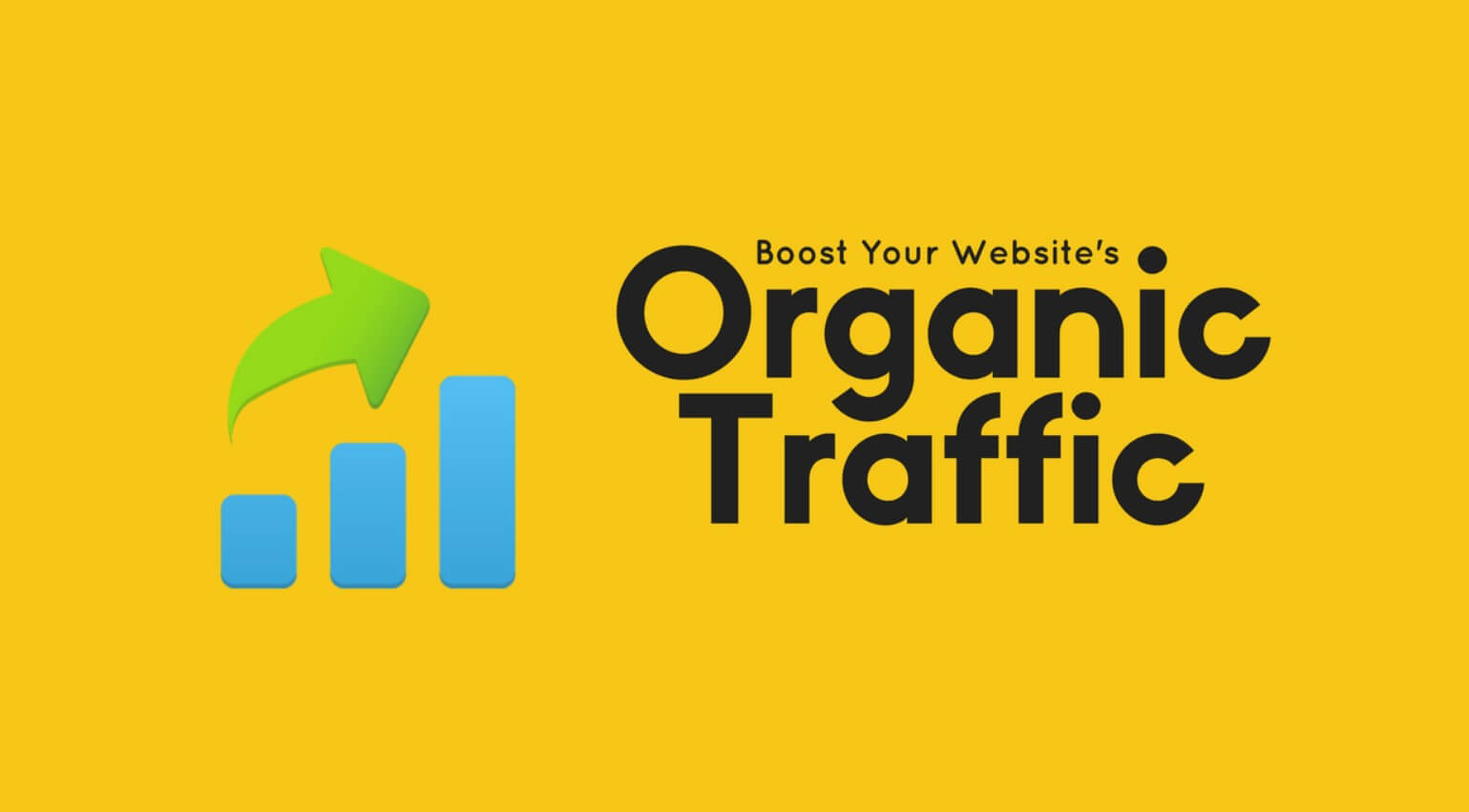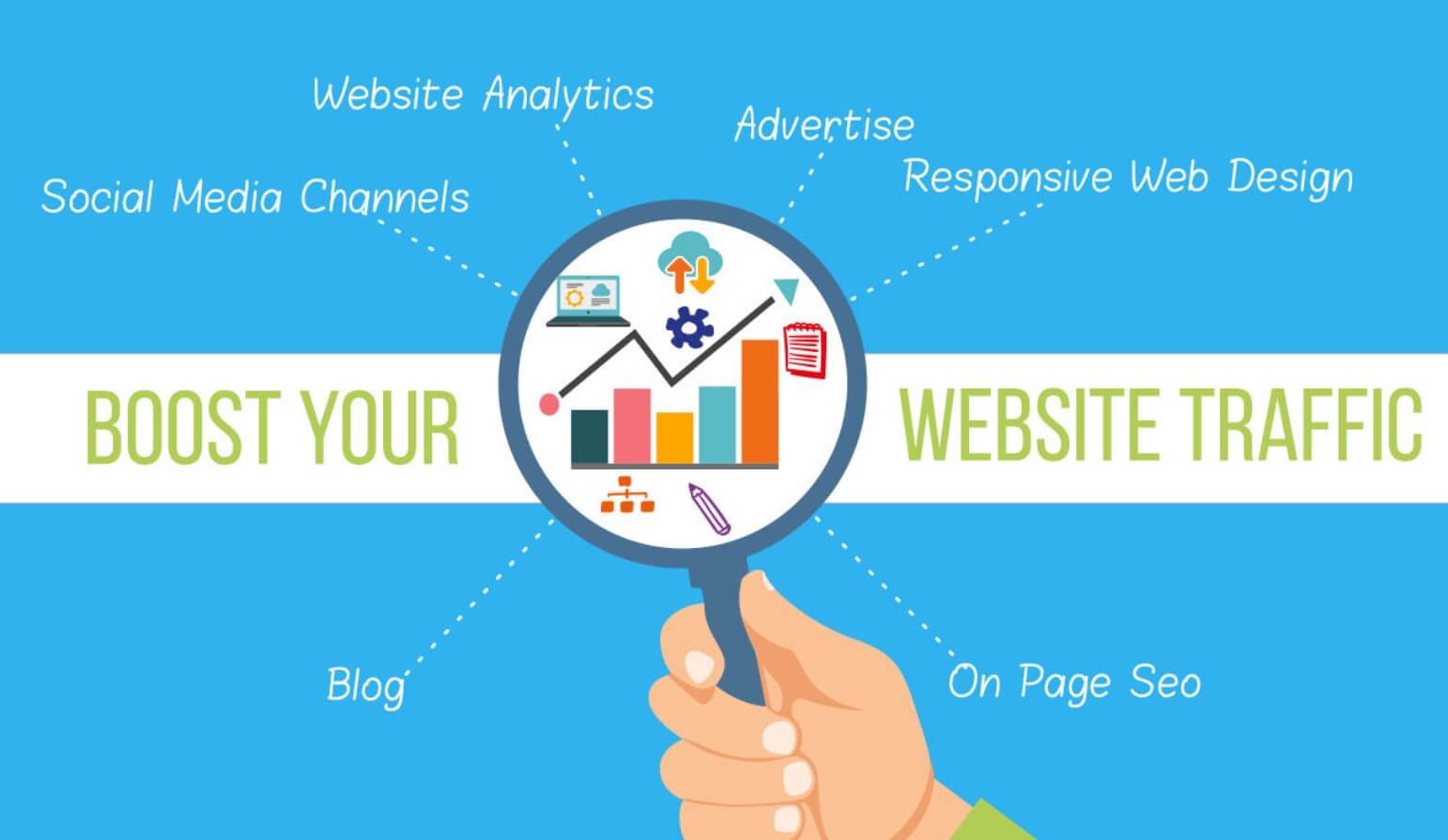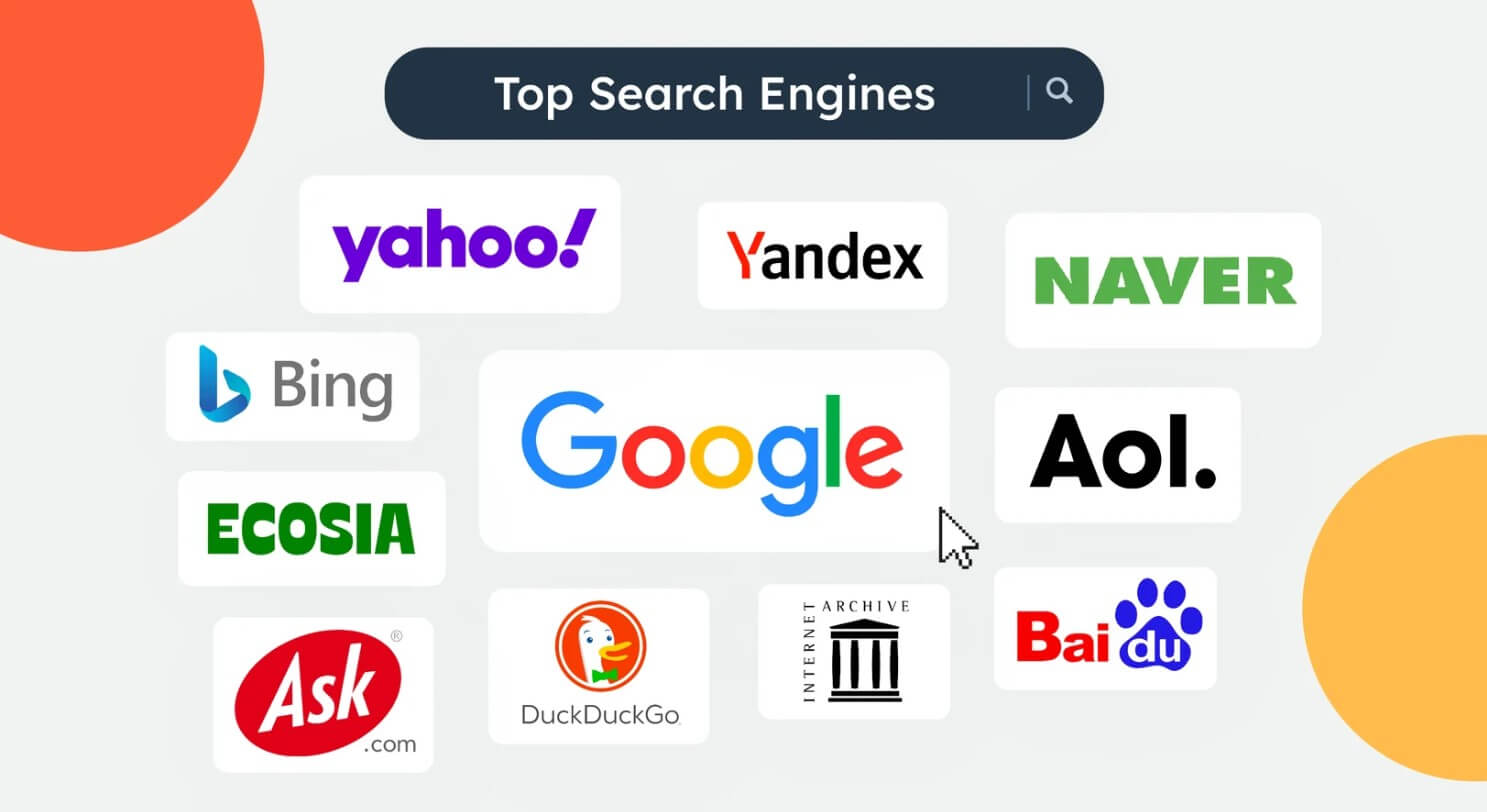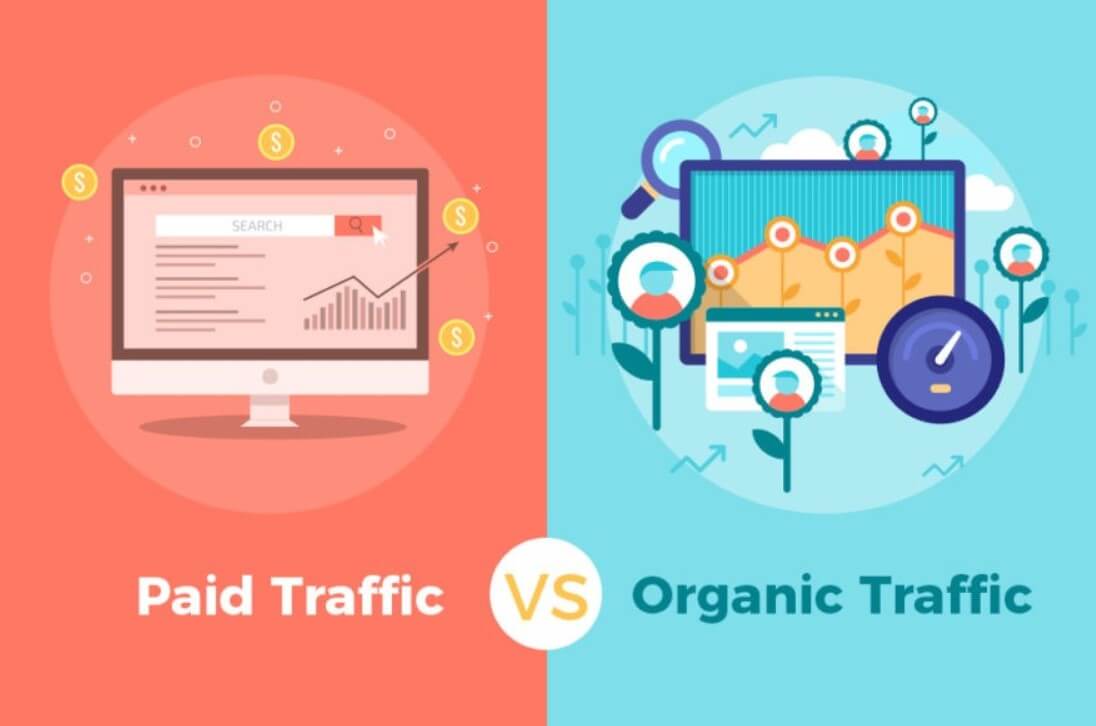What Is Organic Traffic? And How to Increase It

Today, in the digital world, every website owner and marketer knows how important it is to get visitors to their site. Whether you run a blog, an online store, or a service-based site, attracting visitors is crucial for success. However, not all visitors are the same. Paid traffic can bring people to your site quickly, but there's something special about organic traffic. It's sustainable, cost-effective, and shows that your site is trustworthy. But what exactly is organic traffic, and how can you get more of it?
In this article, we’ll explore everything you need to know about organic traffic, and why it matters, and share practical tips to help you boost your site’s visibility in search engine results.
What Is Organic Traffic?
Organic traffic refers to the visitors who land on your website as a result of unpaid search results from search engines like Google, Bing, or Yahoo. These visitors are drawn to your site by its ranking in the search engine results pages (SERPs) based on the relevance of your content to their search queries.
In essence, organic traffic occurs naturally without the need for paid ads. This type of traffic is often the most valuable because it indicates that users find your content relevant, trustworthy, and engaging enough to click through from search engines to your site.
Organic traffic stands in contrast to paid traffic, where you pay for advertisements (such as Google Ads) to appear at the top of SERPs. Paid ads can give you quick visibility, but they don’t build long-term authority or credibility in the way that organic search can.
Why Organic Traffic Matters

Organic traffic is vital for several reasons. First, it's cost-effective—unlike paid campaigns, you don't have to invest a budget in every click. Once your site ranks high for important keywords, you can enjoy a consistent stream of visitors at no extra cost.
Moreover, organic traffic is sustainable. While paid traffic stops the moment you turn off your ad campaigns, organic traffic continues as long as your website maintains its ranking. Visitors arriving through organic search are often more engaged, as they are actively searching for information or services related to your content.
High organic traffic also reflects your website’s authority. Ranking highly in search results signals to users (and search engines) that your website is a credible source of information or a reliable solution for their queries.
How Search Engines Determine Organic Traffic

Search engines use sophisticated algorithms to determine which websites appear in search results for particular queries. These algorithms assess various factors, including:
- Relevance: How closely your content matches the searcher’s intent.
- Authority: The credibility and trustworthiness of your website, are often determined by backlinks from other high-quality websites.
- User Experience: How well-designed, mobile-friendly, and fast-loading your website is.
- Content Quality: Whether your content is informative, engaging, and answers users' questions comprehensively.
When users click on your link in the SERPs, the visit is logged as organic traffic. Search engines like Google track this data, and consistent organic visits can contribute to improved rankings over time.
Organic vs. Paid Traffic

There’s an ongoing debate among digital marketers about whether organic traffic or paid traffic is more beneficial. Both have their advantages, but it’s essential to understand how they differ.
Paid traffic brings immediate results, providing instant visibility on search engines or social media platforms. However, it requires a continuous budget and does not offer long-term benefits unless supplemented with organic efforts.
Organic traffic, on the other hand, is more sustainable. Once you've built up authority through effective SEO, your website can maintain high rankings with little to no ongoing expense. Organic visitors tend to trust your site more since they discover it naturally through their search efforts.
While paid campaigns are great for short-term boosts or specific promotions, organic traffic remains crucial for long-term success.
The Role of SEO in Organic Traffic
Search Engine Optimization (SEO) plays a fundamental role in driving organic traffic. By optimizing your website for SEO, you ensure that your pages are visible to search engines and rank higher for relevant keywords.
There are two key components to SEO: on-page SEO and off-page SEO. Both are essential in increasing organic traffic and ensuring your website remains competitive in search results.
Key Elements of On-Page SEO
On-page SEO refers to the optimization you do directly on your website. Here are some essential on-page strategies:
- Keyword Research: Identifying the right keywords that match user intent and incorporating them naturally into your content.
- Title Tags and Meta Descriptions: Crafting compelling, keyword-rich titles and meta descriptions that entice users to click through to your site.
- Content Optimization: Ensuring that your content is valuable and original, and answers the user’s query comprehensively.
- Internal Linking: Linking relevant pages within your site to improve navigation for both users and search engines.
- URL Structure: Creating short, descriptive, and keyword-rich URLs.
By refining these elements, you can create content that not only attracts visitors but also keeps them engaged, encouraging higher rankings and increased organic traffic.
Off-Page SEO and Its Impact
Off-page SEO refers to the actions taken outside of your website to improve its rankings. These strategies mainly focus on building your website’s authority and reputation. The most critical off-page SEO tactic is backlinking.
Backlinks are links from other websites that point to your content. When high-authority sites link to you, search engines see this as a sign that your content is valuable and trustworthy. The more high-quality backlinks you have, the more likely you are to rank higher in search results, which in turn boosts your organic traffic.
Understanding Keywords
Keywords are the cornerstone of any successful SEO strategy. These are the phrases or queries users type into search engines when looking for specific information, products, or services. To increase organic traffic, you need to identify the keywords your target audience is using and integrate them naturally into your content.
There are two types of keywords to consider:
- Short-tail keywords: These are broader and more general, such as “digital marketing.” They often have high search volume but can be highly competitive.
- Long-tail keywords: These are more specific phrases like “best digital marketing strategies for small businesses.” They have a lower search volume but attract highly targeted traffic with a clear intent.
Focusing on long-tail keywords can help you attract a more engaged audience and increase your chances of ranking higher in the SERPs.
User Experience and Organic Traffic
User experience (UX) is closely tied to SEO and organic traffic. Search engines prioritize websites that offer a seamless, user-friendly experience. Factors that contribute to good UX include:
- Mobile Optimization: As more users browse the web on mobile devices, having a mobile-friendly site is essential. Google now uses mobile-first indexing, meaning it primarily uses the mobile version of a site for ranking purposes.
- Page Speed: Faster loading times lead to better user experiences and higher rankings. If your pages take too long to load, users will leave, increasing your bounce rate and hurting your organic rankings.
- Easy Navigation: A well-organized website structure makes it easier for visitors to find what they’re looking for, which can lead to longer time on site and improved rankings.
By optimizing your website for UX, you not only retain more visitors but also increase your chances of attracting even more organic traffic.
Content Quality and Organic Traffic
High-quality content is the backbone of any successful organic traffic strategy. Search engines reward websites that consistently provide valuable, informative, and relevant content to users.
Here are some tips for creating content that drives organic traffic:
- Answer User Questions: Create content that answers the most common questions in your niche. Consider using tools like AnswerThePublic to find common search queries.
- Use Multimedia: Incorporate videos, images, and infographics to make your content more engaging.
- Regular Updates: Google favors fresh content, so regularly update your blog posts and web pages with the latest information.
By prioritizing quality, you’ll increase the likelihood that your content will rank higher, bringing in more organic traffic over time.
How Blog Writing Increases Organic Traffic
Blogging is one of the most effective ways to increase organic traffic. Each new blog post you publish is an opportunity to rank for new keywords, answer new queries, and provide value to your audience.
To maximize the impact of your blog, consider the following:
- Create Evergreen Content: These are posts that remain relevant over time. Evergreen content continually brings in traffic long after it’s been published.
- Focus on Long-Tail Keywords: Blog posts are ideal for targeting long-tail keywords that cater to specific queries from your audience.
- Consistency: Regular blogging helps you build authority in your niche, and search engines reward consistent content creators.
A well-maintained blog can become a powerful traffic driver, bringing in new organic visitors month after month.
Importance of Backlinks
Backlinks remain one of the most powerful off-page SEO factors in driving organic traffic. When a credible site links to your content, it acts as a vote of confidence in the quality of your material. Here's how backlinks help:
- Increased Authority: Sites with more backlinks tend to have higher domain authority, a factor Google considers when ranking websites.
- Referral Traffic: Backlinks from reputable sites can also bring direct referral traffic to your site.
- Improved Rankings: The more quality backlinks you have, the higher your content is likely to rank in the SERPs, thus increasing organic traffic.
Social Media and Organic Traffic

While social media itself is not a direct ranking factor, it can indirectly influence your organic traffic. When you share your content on platforms like Facebook, Twitter, and LinkedIn, it has the potential to reach a larger audience and earn more engagement. High social engagement can increase brand awareness, which may lead to more people searching for your brand or content directly through search engines.
Additionally, popular content on social media often attracts backlinks, which further boosts your organic rankings.
Mobile Optimization for Organic Traffic
With mobile traffic now surpassing desktop traffic, it’s crucial to ensure that your website is mobile-friendly. If your site isn’t optimized for mobile users, you risk alienating a significant portion of your audience and missing out on valuable organic traffic.
Key aspects of mobile optimization include:
- Responsive Design: Ensure that your site adapts to all screen sizes.
- Fast Load Times: Compress images and minimize code to improve mobile load times.
- Mobile-Friendly Content: Use larger fonts, clear navigation, and avoid pop-ups that interfere with the user experience on smaller screens.
Google’s mobile-first indexing means that your mobile site plays a pivotal role in determining your organic rankings. Without proper optimization, you risk falling behind in SERPs.
Voice Search and Its Effect on Organic Traffic
The rise of smart assistants like Siri, Alexa, and Google Assistant has led to a surge in voice search queries. People now ask more conversational questions when searching, which means optimizing for voice search is critical for increasing organic traffic.
To optimize for voice search:
- Target Long-Tail Keywords: People speak differently than they type, often using more specific, longer queries when using voice search.
- Focus on Local SEO: Many voice search queries are local, such as “Where’s the best coffee shop near me?”
- Provide Concise Answers: Aim to answer voice queries quickly and succinctly, ideally within the first few sentences of your content.
By optimizing your content for voice search, you can tap into a growing segment of users and drive more organic traffic.
Optimizing for Featured Snippets
Featured snippets are a prime opportunity to increase your organic traffic. These are the short pieces of information that appear at the top of Google search results in response to a query, often referred to as “Position Zero.” Featured snippets pull content directly from relevant web pages and provide users with quick answers.
To optimize for featured snippets:
- Answer Questions Clearly: Use concise, straightforward language to answer common questions in your niche.
- Structure Your Content Properly: Use headers, lists, and bullet points to make it easier for Google to identify important information.
- Target Questions-Based Keywords: Focus on keywords that are question-based, as these are more likely to trigger a featured snippet result.
Appearing in featured snippets not only boosts your visibility but can also significantly increase your organic click-through rate.
Page Speed and Its Influence
Page speed has become an increasingly important factor for SEO. A fast website provides a better user experience, and Google has made it clear that page speed is a ranking factor.
A slow website can increase bounce rates, as users are less likely to stick around and wait for pages to load. On the other hand, faster load times improve engagement and help your site rank higher in search results, leading to more organic traffic.
To improve page speed:
- Compress Images: Large image files can slow down your site, so compress them to reduce load times.
- Minimize HTTP Requests: Limit the number of elements on each page to reduce server requests.
- Use a Content Delivery Network (CDN): A CDN can help deliver content faster by using servers closer to the user.
Internal Linking for SEO and Traffic
Internal linking involves linking one page of your website to another. This practice is crucial for SEO as it helps search engines understand the structure of your site and distribute page authority across your pages.
Effective internal linking improves user experience by guiding visitors to related content, keeping them on your site longer, and reducing bounce rates. It also helps search engines crawl your site more efficiently, which can lead to better rankings and more organic traffic.
Local SEO and Organic Traffic Growth
Local SEO is essential for businesses that serve specific geographical areas. By optimizing your site for local search queries, you can attract more nearby customers and increase organic traffic.
Key local SEO tactics include:
- Google My Business: Claim and optimize your Google My Business profile to appear in local search results and on Google Maps.
- Localized Keywords: Use location-based keywords in your content and meta tags.
- Local Backlinks: Obtain backlinks from other local businesses or regional publications to boost your local rankings.
Local SEO helps businesses connect with a highly targeted audience, increasing the chances of driving organic traffic and conversions.
Analyzing Organic Traffic with Google Analytics
To effectively increase your organic traffic, you need to track and analyze it regularly. Google Analytics is a powerful tool that helps you monitor your website’s performance and identify areas for improvement.
In Google Analytics, you can:
- Track Organic Traffic: View how much of your traffic comes from organic search.
- Analyze Keywords: Discover which keywords are driving traffic to your site.
- Monitor User Behavior: Understand how visitors interact with your site, including which pages they visit and how long they stay.
- Identify Content Opportunities: Use the data to create more of the content that performs well in organic search.
By using Google Analytics, you can make data-driven decisions to optimize your SEO strategy and increase organic traffic.
How to Increase Organic Traffic Through Social Proof
Social proof, such as testimonials, reviews, and case studies, plays a significant role in influencing user behavior and increasing organic traffic.
- Testimonials and Reviews: Positive reviews on third-party sites can improve your credibility, leading to higher click-through rates from search results.
- Case Studies: Publishing case studies that showcase your successes helps build trust and authority in your niche, encouraging more organic visits.
Incorporating social proof into your content strategy can lead to better rankings and more organic traffic as search engines recognize the value of trusted, authoritative content.
Long-Tail Keywords and Organic Traffic Growth
Long-tail keywords may have lower search volumes, but they often convert better because they cater to more specific user intent. These keywords tend to be less competitive, making them easier to rank for.
By focusing on long-tail keywords, you can attract a more targeted audience that is actively seeking what you offer, leading to an increase in organic traffic.
Why Regular Content Updates Matter
Regularly updating your content keeps it relevant and can lead to better organic rankings. Google favors fresh, up-to-date content, especially in fast-changing industries.
- Refresh Old Posts: Update statistics, add new information, and improve formatting on older blog posts.
- Add New Content: Continuously create new content to target emerging keywords and trends.
By keeping your content current, you’ll maintain your rankings and continue to drive organic traffic.
Role of User Engagement in Organic Traffic
Engagement metrics, such as time on page, bounce rates, and click-through rates (CTR), are indicators of how well your content resonates with users. Search engines use these signals to determine the relevance and quality of your content.
High engagement suggests that users find your content valuable, which can lead to higher rankings and more organic traffic.
To improve user engagement:
- Use Engaging Headlines: Craft compelling headlines that draw readers in.
- Incorporate Multimedia: Videos, images, and interactive elements can help keep users on your page longer.
- Clear Call-to-Actions (CTAs): Encourage users to take action with clear and concise CTAs.
Optimizing Meta Descriptions and Titles
Meta descriptions and titles are critical for driving organic traffic. They are the first things users see in search results, and a well-crafted meta description can significantly improve your CTR.
- Include Keywords: Make sure your meta descriptions and titles include relevant keywords to improve rankings.
- Keep It Concise: Google typically displays the first 160 characters of a meta description, so keep it brief and to the point.
- Create a Hook: Write meta descriptions that entice users to click, such as by asking a question or promising a solution to their problem.
Optimizing your meta tags can lead to higher CTRs, improved rankings, and more organic traffic.
Avoiding Common SEO Mistakes
Many website owners unknowingly make SEO mistakes that can hurt their organic traffic. Here are some common mistakes to avoid:
- Keyword Stuffing: Overloading your content with keywords can lead to penalties from search engines.
- Duplicate Content: Ensure that your content is original and not duplicated from other sources.
- Ignoring Mobile Optimization: Failing to optimize for mobile devices can result in lower rankings.
By avoiding these common pitfalls, you can ensure that your SEO efforts are rewarded with more organic traffic.
Leveraging Google My Business for Organic Reach
Google My Business (GMB) is a powerful tool for increasing your organic visibility, especially for local businesses. By creating and optimizing a GMB profile, you can improve your chances of appearing in local search results.
Key GMB optimization tips:
- Complete Your Profile: Ensure that your profile is fully filled out with accurate information.
- Encourage Reviews: Positive reviews help build trust and can improve your local search rankings.
- Post Regular Updates: Use GMB’s post feature to share news, promotions, or updates with your audience.
A well-optimized GMB profile can significantly boost your local organic traffic.
FAQs About Organic Traffic
What is the difference between organic traffic and paid traffic?
Organic traffic comes from unpaid search results, while paid traffic is the result of advertising campaigns. Organic traffic is sustainable, while paid traffic requires a continuous budget.
How does SEO affect organic traffic?
SEO improves your website’s visibility in search engine results, making it easier for users to find your site. Proper SEO techniques, such as keyword optimization and high-quality content, can lead to higher rankings and more organic traffic.
Why is organic traffic important?
Organic traffic is crucial because it’s free, sustainable, and reflects the relevance and authority of your content. It often leads to more engaged visitors who are genuinely interested in your offerings.
Can social media increase organic traffic?
Yes, social media can indirectly increase organic traffic by driving brand awareness, earning backlinks, and encouraging users to search for your content.
What is a long-tail keyword?
A long-tail keyword is a more specific, less competitive search phrase that typically has a lower search volume but higher intent, making it easier to rank for.
How often should I update my content to maintain organic traffic?
It's a good practice to update your content every few months to keep it fresh and relevant. Regular updates help maintain your rankings and continue attracting organic traffic.
Conclusion
Increasing organic traffic is a long-term, sustainable way to grow your website’s audience and improve its visibility in search engines. You can build a steady stream of organic visitors by optimizing your content with SEO best practices, creating high-quality material, and paying attention to user experience.
Whether focusing on keyword research, improving your site’s mobile performance, or regularly updating your blog, these strategies will help ensure that your website stands out in the competitive online landscape. Start implementing these tips today, and watch your organic traffic grow, bringing you closer to your goals without breaking the bank.





